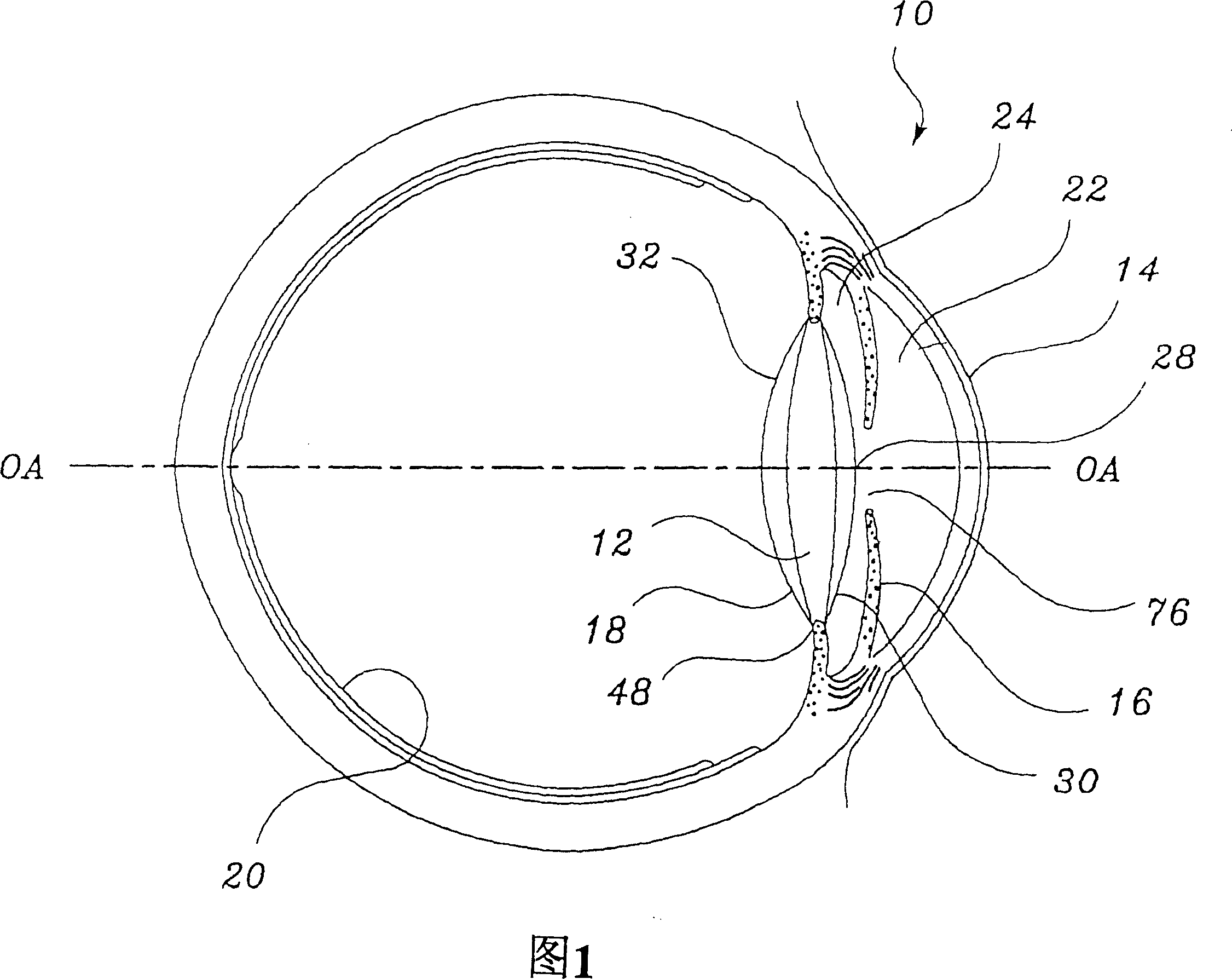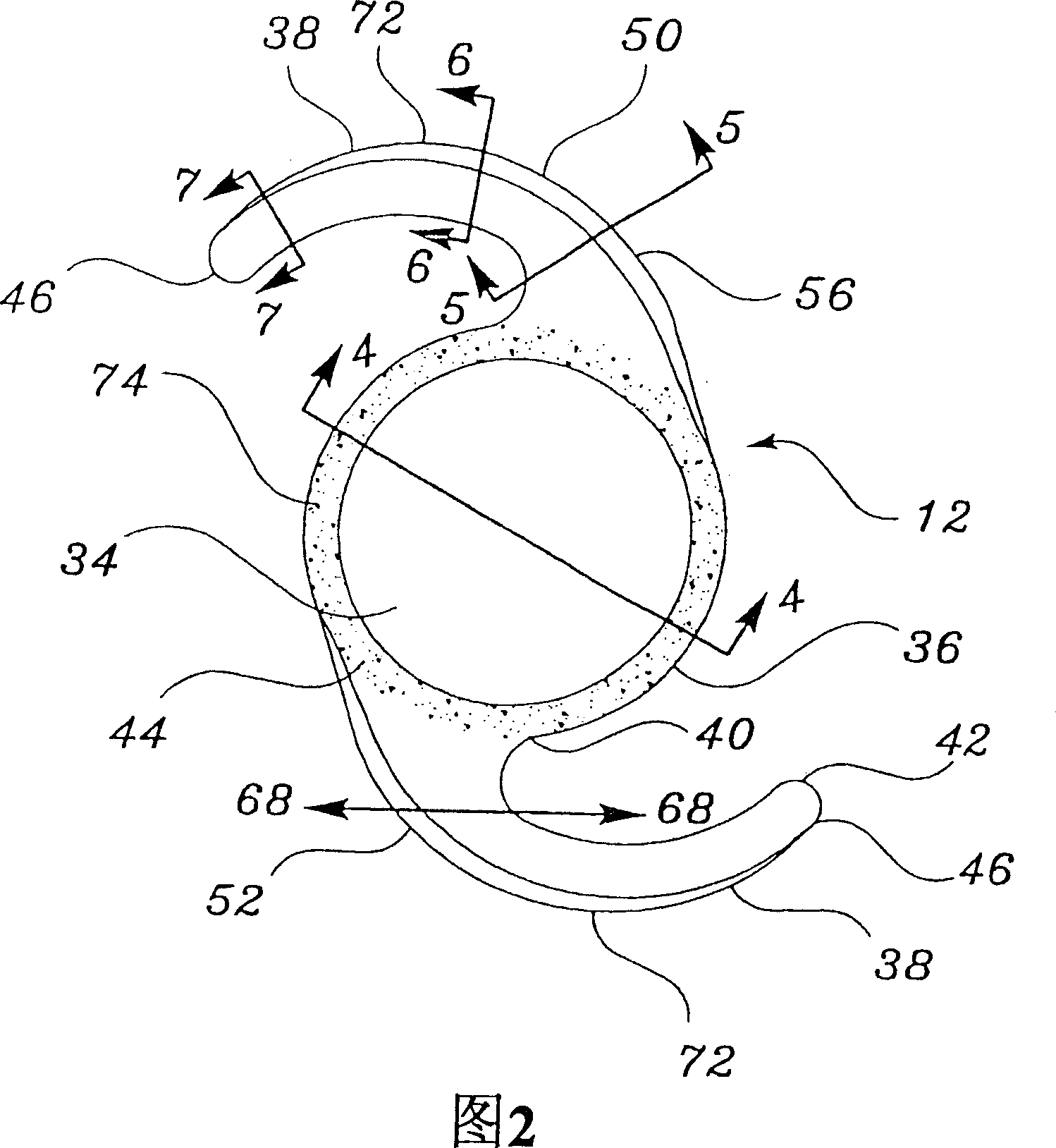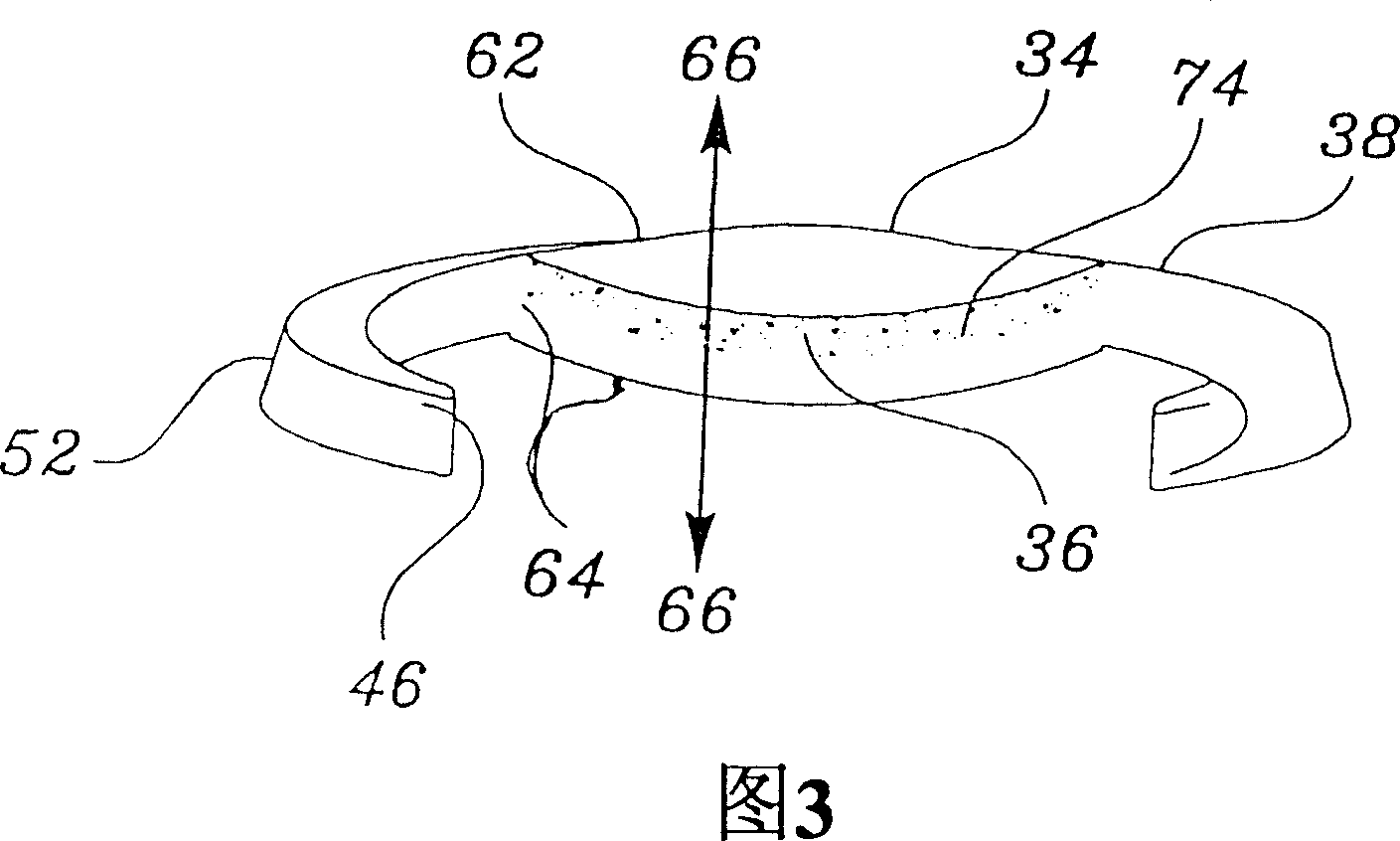Intraocular lenses provided with angled edges to prevent posterior capsular opacification
A lens and eye technology, applied in the direction of intraocular lenses, eye implants, etc., can solve the problems of increased incidence of complications and induced astigmatism
- Summary
- Abstract
- Description
- Claims
- Application Information
AI Technical Summary
Problems solved by technology
Method used
Image
Examples
Embodiment Construction
[0036] Figure 1 is a schematic diagram of an eye showing the structure of the eye involved in the implantation of an intraocular lens (IOL) 12 according to the present invention. The eye includes a transparent cornea 14 and iris 16 . Lens capsule 18 and retina 20 are disposed behind iris 16 of eye 10 . Eye 10 also includes an anterior chamber 22 located in front of iris 16 and a posterior chamber 24 located between iris 16 and lens 18 . The IOL is preferably implanted within the lens capsule 18 of the aphakic eye. When they are used in aphakic eyes, IOLs 12 are used to replace surgically removed diseased natural lenses, such as after cataract surgery. Eye 10 also includes an optical axis OA-OA, which is an imaginary line passing through the optical center of anterior surface 30 and posterior surface 32 of lens capsule 18 . Optical axis OA-OA in human eye 10 is generally perpendicular to retina 14 , perpendicular to lens 18 and cornea 20 .
[0037] An IOL according to the p...
PUM
 Login to View More
Login to View More Abstract
Description
Claims
Application Information
 Login to View More
Login to View More - R&D
- Intellectual Property
- Life Sciences
- Materials
- Tech Scout
- Unparalleled Data Quality
- Higher Quality Content
- 60% Fewer Hallucinations
Browse by: Latest US Patents, China's latest patents, Technical Efficacy Thesaurus, Application Domain, Technology Topic, Popular Technical Reports.
© 2025 PatSnap. All rights reserved.Legal|Privacy policy|Modern Slavery Act Transparency Statement|Sitemap|About US| Contact US: help@patsnap.com



